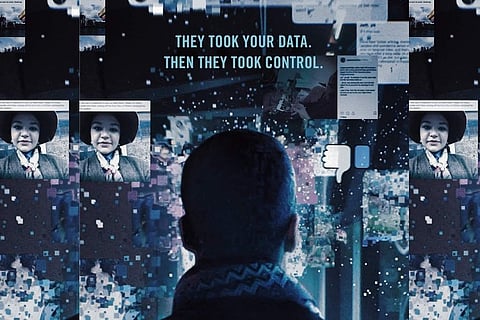

Even as you click to read this review of a Netflix documentary, your digital journey has come some length— from the time you activated the Wifi or data connection to opening your phone or laptop, to clicking on the link and scrolling— hopefully— to the end. The data trail or ‘digital footprint’ is the hottest commodity in the 21st century’s modern capitalist society.
This is why The Great Hack chooses to focus on one of the most jarring scandals in recent history that exposed just how much the actions of one social media giant has hurt millions of people around the world and their hard-earned democracies. The Netflix documentary revolves around the Facebook–Cambridge Analytica data scandal that shook the world in March last year.
Investigations by three media outlets— with the help of whistleblower Christopher Wylie— found that Cambridge Analytica, a London-based political consultancy, and Facebook were complicit in harvesting the Facebook profiles of 50 million unsuspecting users without their knowledge or consent. The data, obtained through a seemingly innocuous personality test, became the political mindmap of entire populations, used for customised propaganda that would swing voters.
Directed by Karim Amer and Jehane Noujaim, the documentary takes the viewer behind the scenes of the scandal. The story is told through the lives of David Carroll, a New York-based professor who challenged Cambridge Analytica over the use of his data, Brittany Kaiser, a former Cambridge Analytica employee, and Carole Cadwalladr, the Guardian journalist who exposed the firms, and ties the scandal to the Leave campaign in the British referendum to leave the European Union.
While the information presented by the documentary is by no means new to those who had followed the scandal and the debate around data rights, the two-hour-long film presents the data barons and their former close aides in a more personal environment. The people who previously helped the tech giants mine our data for money and power, and the people who continue to do so are not in front of lawmakers, answering questions, they're not in television studios, giving rehearsed statements. However, these people can be seen expressing remorse, vowing to rectify their behaviour and visibly dedicating the rest of their lives to correcting course, in the film. They are saying sorry whether we are ready to, and indeed will ever, forgive them.
For starters, The Great Hack helps put together a more coherent picture of one of the most defining political scandals of our time. Not shot chronologically, however, the documentary goes into some detail about how Facebook users who consented and their friends who didn't, were shown sponsored messages and ads (read: propaganda), whipping up racial sentiments and stoking right-wing authoritarianism. Calling the targeted usage of this information "weapons grade communication technology", experts also warn of the dangers of unregulated tech companies.
Despite the effort to retell a story that remains recent in the world's memory, the documentary's focus on the Trump campaign in the US and the Leave campaign in the UK ignores the impunity with which Facebook appears to have operated in the global south. It takes no more than a passing glance at the alleged election rigging in Trinidad and Tobago aided by Cambridge Analytica or the deadly anti-Rohingya violence in Myanmar, allegedly orchestrated using Facebook groups. It is even more frustrating since these are countries where tech giants have not even bothered to employee local language-speaking experts to counter the hate and misuse on its platforms. Secondly, the documentary's sure-footed focus on the aforementioned campaigns alone fails to fully acknowledge that former President Barack Obama's campaign also sought to understand voter behaviour through social media profiles.
In fact, the documentary also misses the world's largest democracy. Shortly after the scandal came to light, Wylie announced that the political consultancy had also worked in Indian elections including polls in Uttar Pradesh, Bihar, Madhya Pradesh, and Rajasthan and the 2009 Lok Sabha polls. With reports revealing that the firm pitched the use of their voluminous data sets to major political parties in the country, the two national parties, the BJP and the Congress, ended up mudslinging each other.
Overall, documentary is a must-watch, especially for those who wish to understand the names, faces and stories behind the 'great data robbery' of our times. While the dramatic interviews and personal accounts narrated while shuttling between airports, upmarket hotels and chauffeured cars don't paint a picture of reform and activism, it does wake one up to that familiar anger of being cheated and exploited. It reminds us that our privacy is truly a fundamental right that can’t be a plaything in the hands of the rich and powerful, and that data rights are and should be human rights.
Disclaimer: This review was not paid for or commissioned by anyone associated with the series/film. TNM Editorial is independent of any business relationship the organisation may have with producers or any other members of its cast or crew.